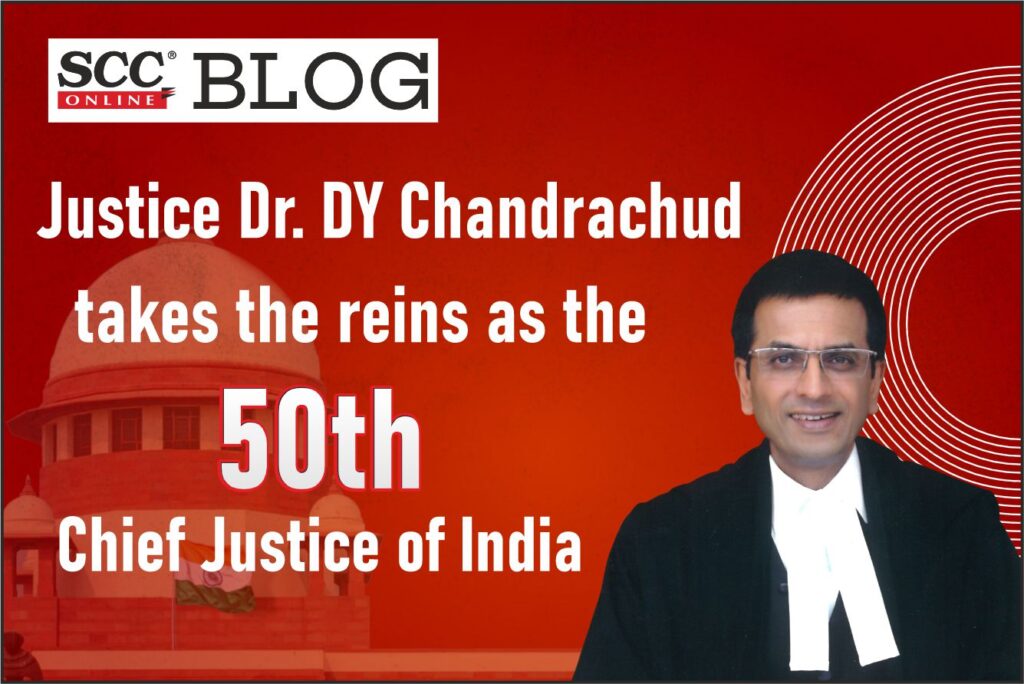By K Raveendran
Chief Justice D Y Chandrachud has less than a month to go for retirement. His tenure, the longest in the past 14 years, would be known for a distinctive judicial approach that stands in contrast to many of his predecessors’. He infused the Supreme Court with a renewed focus on individual rights, social justice, and constitutional values, particularly in cases that involve the Union government.
Coming from a lineage of legal brilliance, with his father having served as the longest-serving Chief Justice in Indian history, Justice Chandrachud carried the weight of legacy on his shoulders. Yet, it wasn’t just the expectations of a family name that shaped his tenure. From the outset, he exhibited a progressive approach that many felt would lead the judiciary toward greater defence of personal liberties, a promise he has largely upheld. His tenure came at a time of heightened scrutiny over the relationship between the judiciary and the executive, and his decisions have sparked important debate about the role of the Court in upholding democracy.
The incumbent CJI has consistently emphasized the need for safeguarding civil liberties, drawing attention to the imperatives of justice and equity. This is evident in cases where the Union government has sought to implement policies that may infringe upon individual freedoms. For instance, in a landmark ruling related to the rights of same-sex couples, a bench headed by him recognized the importance of equality and non-discrimination, sending a strong message about the constitutional guarantee of rights regardless of sexual orientation. This decision not only affirmed individual rights but also underscored the judiciary’s role in checking governmental power.
Chandrachud’s tenure highlighted a nuanced understanding of the constitutional framework, especially in cases concerning national security and public order. His judgments reflect a balanced approach, often prioritizing the rights of individuals while still considering the state’s interest in maintaining order. Such balancing is crucial in a democracy, where the rights of the few can easily be overshadowed by the perceived needs of many. One of the most significant judgments under his tenure came in the context of habeas corpus petitions challenging preventive detentions. The case surrounding this issue carried significant political and social ramifications, with the government invoking national security to justify its actions.
While acknowledging the state’s duty to maintain law and order, the court made it clear that personal liberty cannot be sacrificed at the altar of vague national security concerns. In cases involving sedition laws and restrictions on freedom of speech, Chandrachud has taken a stand against overly broad applications of such laws by the Union government, advocating for a more restrained approach that respects the spirit of the Constitution.
The commitment to inclusivity and social justice in his judgments has been a defining feature of Chandrachud’s tenure. His judgments frequently reflected a deep understanding of the challenges faced by marginalized communities. In a notable ruling involving the rights of the marginalized in welfare schemes, Chandrachud’s court emphasized the need for the government to ensure that its policies do not inadvertently exclude those most in need. This is particularly significant in a country where social inequalities persist. By focusing on the voices of the marginalized, the apex court under Chandrachud reinforced the judiciary’s role as a protector of the disenfranchised, standing in stark contrast to a historical tendency where governmental policies often overlooked these populations.
The relationship between the judiciary and the executive has always been fraught with tension, but Chandrachud’s tenure saw the court not shying away from challenging the government’s decisions, especially in matters related to the controversial Citizenship Amendment Act (CAA) and similar laws enacted by the Modi government. Under Chandrachud’s guidance, the court undertook a rigorous examination of the implications of such laws on the rights of individuals.
His advocacy for transparency and accountability within the judicial system stands out, particularly in an era where concerns about judicial independence are increasing consistently. The CJI took proactive steps to ensure that the appointment process is devoid of arbitrary influence, fostering an environment where the judiciary can operate free from external pressures, including those from the government. He also championed the need for making the judiciary more accessible to the common citizen, advocating for mechanisms that facilitate public participation in the judicial process. This is particularly crucial in a country where the legal system can often feel daunting and out of reach for many. His efforts in this direction signify a commitment to demystifying the judiciary and ensuring that justice is not merely an abstract concept but a tangible reality for all.
His stance on privacy has also been a defining feature of his tenure. Chandrachud’s observations on the right to privacy, particularly in relation to the Aadhaar verdict, reflect a deep concern about the dangers posed by unchecked state surveillance, warning that such practices could erode the very foundations of democracy. This position is crucial in an age where governments increasingly seek to use technology to monitor citizens, often justifying these actions in the name of efficiency or national security.
The CJI’s remarks ahead of his retirement made at a lecture in Bhutan were perhaps poignant. Speaking at the convocation ceremony of the JSW Law School there, the CJI said: “As my tenure is coming to an end, my mind has been heavily preoccupied with fears and anxieties about the future and the past.” (IPA Service)

 INDIA Bloc Faces Perform Or Perish Moment In Maharashtra And Jharkhand
INDIA Bloc Faces Perform Or Perish Moment In Maharashtra And Jharkhand 